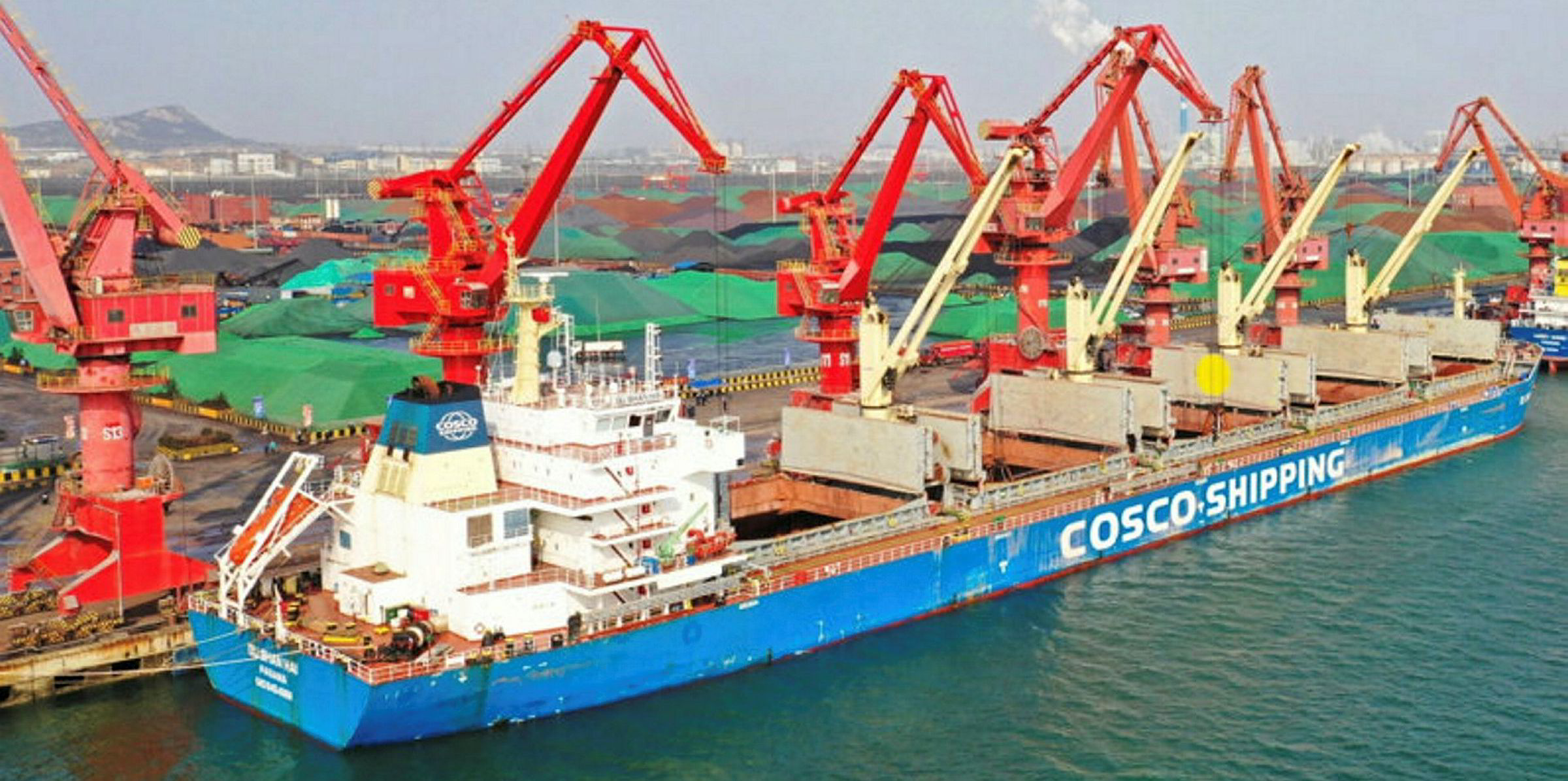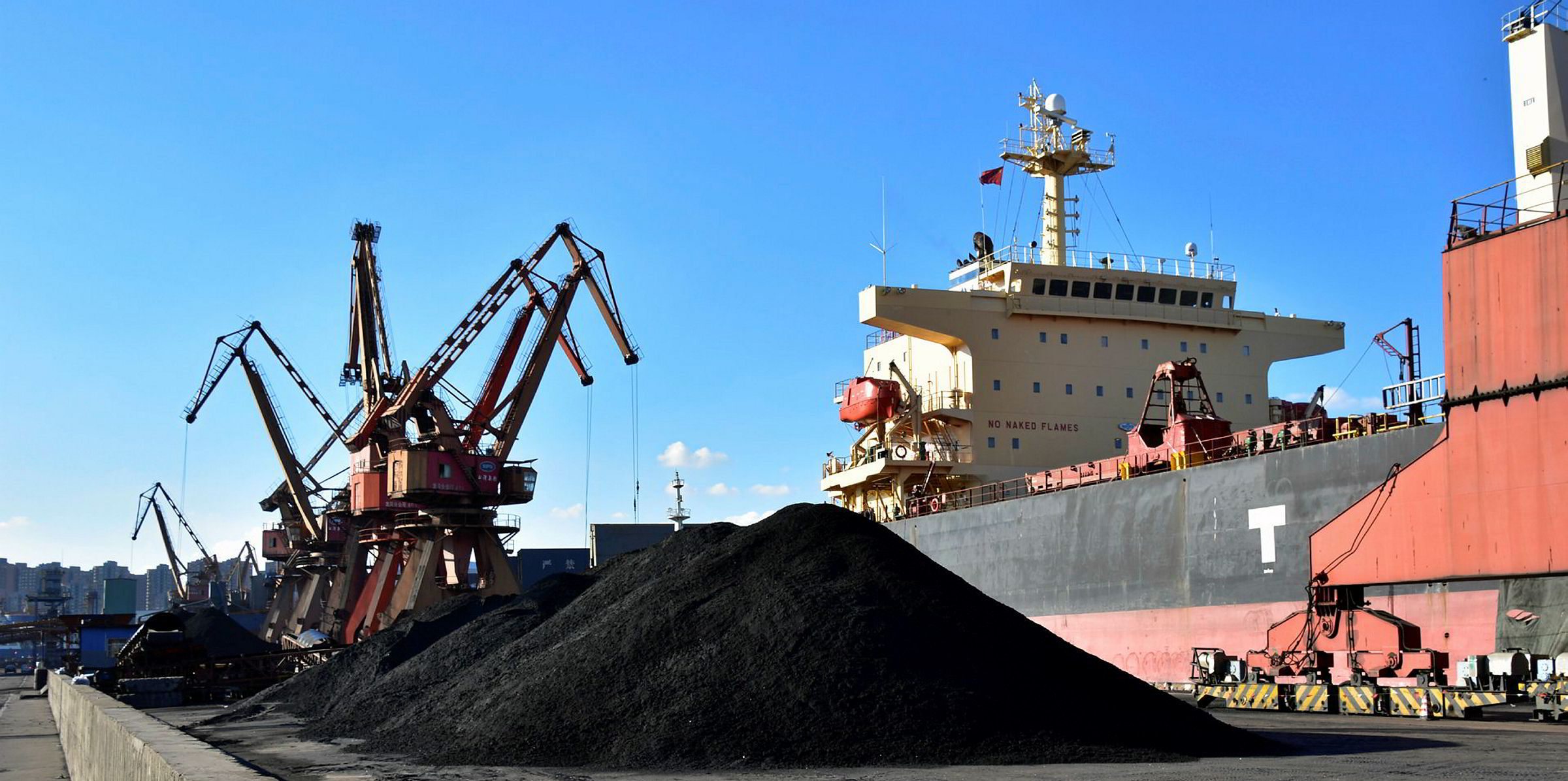China has seen a huge decline in the number of bulkers discharging their cargoes in the wake of the coronavirus outbreak.
The number is reported to have fallen by 34% from average levels, according to data compiled by IHS Markit.
Around 611 bulkers recorded weekly discharges in China for the week ending 7 March 2020 versus a typical average of 900 vessels.
“Since the Covid-19 outbreak there are now visible stress on dry bulk vessel discharges at the hundreds of Chinese ports,” said Rahul Kapoor, head of commodity analytics and research at IHS Markit.
He said there was a surge in discharges in the week ending 22 February 2020, but this was on the back of slower discharges in the prior couple of weeks.
“Similarly, this week again we may expect to see an uptick in discharges after two consecutive weak weeks. However, the overall trend is one of decline,” said Kapoor.
While post Chinese New Year discharge activity at Chinese terminals has nosedived, the average parcel size discharge trend is said to have witnessed a surge indicating that “larger vessels sizes are getting preference over smaller ones”.
“In order to contain the spread of coronavirus Chinese authorities enforced strict travel restrictions by placing the affected regions under strict quarantine,” said Kapoor.
“This resulted in a significant reduction in the number of personnel available to efficiently manage discharging operations at the Chinese terminals.”
Seaborne bauxite arrivals are reported to have been healthy this so far year, but shipments have dropped significantly since mid-February 2020.
Last year China imported a total of 89 million tonnes of bauxite, with 49% of it originating from the west African state of Guinea.
In mid-February this year Chalco, which is China's largest producer of both alumina and aluminium, received its first shipment of bauxite from Boffa Mines in Guinea.
The cargo of 54,000 tons of bauxite was discharged at Rizhao Port in Shandong Province from Cosco Shipping’s ultramax Qu Shan Hai (built 2010).
“The control of the supply chain from mine to port to plant will help the Chinese aluminum industry to cope up with logistics issues such as Covid-19,” said Kapoor.
In contrast to bauxite, nickel discharges at Chinese terminals have “slowed down significantly this year”, according to HIS Markit.
Vessel arrivals during an eight-week moving average are said to have nosedived by more than 80% from the previous year’s levels.
However, HIS Markit said the decline in the arrivals was more of a supply side shock from Philippines as well as Indonesia, rather and due to Covid-19.
“The decline is on back of regional government order in September 2019 to suspend nickel ore mining at the southern Philippines which is the hub of high-grade nickel ore from Philippines,” said Kapoor.
“Similarly nickel ore exports from Indonesia have dried up due to the ban on nickel ore exports was brought forward from 2022 to January 2020.”






